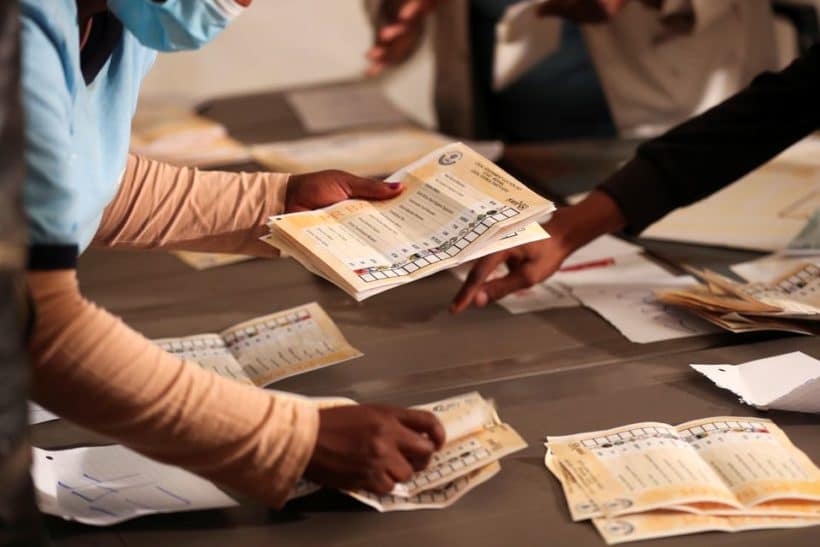
PRETORIA, Nov 2 (Reuters) – Early results from South Africa’s local elections on Tuesday gave the ruling African National Congress (ANC) 46% of the vote, with results in from just over a quarter of polling stations nationwide.
The electoral commission said it expected 90% of results to be finalised by Tuesday evening, in a poll widely seen as a referendum on the ANC’s 27-year stint in charge of Africa’s most industrialised nation.
It added that results from 27% of the country’s 23,000 polling stations had been completed from Monday’s municipal election.
The legacy party of Nelson Mandela has faced a backlash over poor service delivery. Analysts say its share of the vote could fall below half for the first time since it ended white minority rule in 1994 — although there has been scant reliable political polling, and too few votes are counted for a clear indication.
The elections are critical for President Cyril Ramaphosa and his party, as it tries to avert its worst result since 1994. At the last municipal polls in 2016 the ANC got around 54% of the vote.
Read more: South Africa’s ANC faces tough municipal vote over poor services
As well as avoiding the loss of its overall majority, the ANC hopes to win back metropolitan areas it lost to opposition-led coalitions in that poll, including in Johannesburg and Pretoria.
Its main rival is the Democratic Alliance (DA), which has struggled to shed its image as a party of white privilege in a country that is 90% non-white.
Other contenders include the Marxist Economic Freedom Fighters (EFF), led by Julius Malema, and ActionSA, a pragmatic party but whose leader, Herman Mashaba, has been criticised for vociferous anti-immigrant remarks.
Early results for Johannesburg at 1025 GMT gave the ANC 35%, against 26% for the DA, with 5% of votes counted. The DA was, meanwhile, leading Tshwane, which includes Pretoria, with 42% of the vote, against the ANC’s 28%, with 7% of votes counted, TV station eNCA reported.
The ANC’s reputation has been damaged by corruption scandals under former president Jacob Zuma, Ramaphosa’s predecessor, that hollowed out state coffers and deterred investment.
Getting less than half the national vote would be a psychological blow, and would raise the previously unthinkable possibility that the ANC could one day be in opposition. (Additional reporting by Nqobile Dludla in Pretoria, Writing by Tim Cocks, editing by Ed Osmond)

